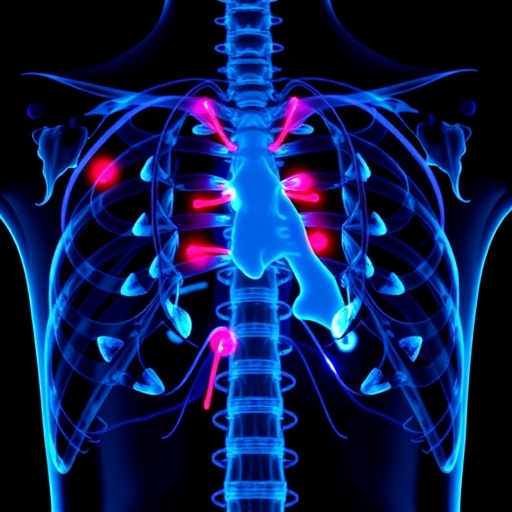In a significant development in the field of thoracic oncology, recent findings from the Phase 3 E4512 clinical trial have revealed that crizotinib, a well-established ALK inhibitor used in advanced non-small cell lung cancer (NSCLC), does not provide a benefit in improving disease-free survival (DFS) when administered as adjuvant therapy in early-stage ALK-positive NSCLC. This trial, conducted as part of the comprehensive ALCHEMIST clinical trials program, was presented at the renowned International Association for the Study of Lung Cancer (IASLC) 2025 World Conference on Lung Cancer (WCLC) held in Barcelona, Spain.
The E4512 trial enrolled patients diagnosed with surgically resected stage IIA through IIIB ALK-positive NSCLC, confirmed by fluorescence in situ hybridization (FISH), immunohistochemistry (IHC), or next-generation sequencing (NGS). Importantly, participants had to meet strict inclusion criteria, including negative surgical margins ensuring complete tumor removal, an Eastern Cooperative Oncology Group (ECOG) performance status of 0–1 denoting relatively preserved functional status, and no prior exposure to any ALK-targeted therapy. Participants were either assigned to active surveillance or crizotinib administered at a dosage of 250 mg twice daily for up to two years, barring disease recurrence or dose-limiting toxicity.
Over a nearly ten-year recruitment period extending from August 2014 to May 2024, the study accrued 166 evaluable patients, closely aligning with its initial target enrollment. The trial’s recruitment was ultimately halted following the U.S. Food and Drug Administration’s approval of alectinib as adjuvant therapy for resected ALK-positive NSCLC, which became the new standard of care and impacted the clinical equipoise necessary for the continuation of the study.
The primary endpoint of the trial was disease-free survival, a critical measure reflecting the time from surgery until cancer recurrence or death, while secondary endpoints included overall survival and safety profiles. After a median follow-up approaching five years (58.3 months), the data demonstrated no statistically significant difference in median DFS between the crizotinib and observation arms. Specifically, patients receiving crizotinib exhibited a median DFS of 72.8 months, slightly below the 75.1 months observed in the observation group, resulting in a hazard ratio (HR) of 1.06 with a wide confidence interval (90% CI: 0.63–1.77) and a high p-value, underscoring the lack of efficacy.
Overall survival data remain immature with median OS not reached in either arm at the time of reporting. Nonetheless, the hazard ratio for OS favored crizotinib numerically (HR 0.49), yet this finding did not achieve statistical significance (p=0.26), indicative of the need for longer follow-up before any definitive conclusions can be drawn regarding survival benefits.
The safety profile of adjuvant crizotinib mirrored known toxicities from prior metastatic NSCLC studies. Grade 3 adverse events were common, affecting roughly one-third of patients treated, with diarrhea and peripheral edema as the most frequent severe toxicities. Moreover, one patient tragically experienced a grade 4 stroke during treatment. Treatment-related adverse effects necessitated dose reductions in nearly a quarter of patients and led to permanent treatment discontinuation in 25%, highlighting the challenge of managing toxicity in the adjuvant setting where patients are potentially cured and generally asymptomatic.
These findings carry significant clinical and biological implications for the management of early-stage resected ALK-positive NSCLC. While crizotinib has revolutionized care for metastatic ALK-positive NSCLC over the last decade, its application in an adjuvant context appears futile according to this trial’s rigorous data. The lack of DFS benefit suggests that crizotinib’s pharmacodynamic and pharmacokinetic properties, or possibly its CNS penetration, may be inadequate to eradicate micrometastatic disease post-surgery.
In contrast, contemporary advances have established second-generation ALK inhibitors like alectinib as the preferred adjuvant agents, given their more favorable CNS activity and superior efficacy in advanced disease. Indeed, regulatory approval of adjuvant alectinib has set a new clinical standard, underscoring the importance of this study’s early termination and providing a sound rationale for clinicians to avoid crizotinib in this context despite its prior approval in metastatic disease stages.
From a molecular perspective, the heterogeneity of ALK rearrangements and the intrinsic resistance mechanisms may also contribute to the observed lack of effect. The ability of crizotinib to reach and sustain cytotoxic levels in potential sanctuary sites post-surgery might be limited. Furthermore, patient selection based on centralized confirmation of ALK status via robust techniques such as FISH, IHC, and NGS ensures the validity of the study population, yet the intrinsic biology of micrometastatic disease remains a formidable barrier.
This trial also reinforces the critical role of large, cooperative group studies embedded within national research initiatives such as the ALCHEMIST program, which rigorously evaluates the utility of targeted therapies in curative-intent settings. The methodological rigor of E4512, including randomized design, stratification, and comprehensive follow-up, exemplifies the gold standard for biomarker-driven trials aimed at personalized medicine in thoracic oncology.
In summation, the E4512 trial results decisively demonstrate that adjuvant crizotinib confers no DFS benefit in patients with resected early-stage ALK-positive NSCLC and is associated with meaningful toxicity. These findings emphasize the evolving paradigm in management where newer-generation ALK inhibitors, supported by more robust clinical data regarding efficacy and CNS penetration, command frontline use in the adjuvant setting.
This data was formally presented and peer-reviewed at the IASLC 2025 World Conference on Lung Cancer, reinforcing the importance of continued multidisciplinary collaboration and innovation in targeting molecular subsets of lung cancer. Moving forward, therapeutic strategies combining surgery with next-generation targeted agents and potentially immunotherapeutic approaches represent a promising horizon for improving outcomes in ALK-driven thoracic malignancies.
Subject of Research:
Adjuvant targeted therapy for resected ALK-positive non-small cell lung cancer
Article Title:
Crizotinib Fails to Improve Disease-Free Survival as Adjuvant Therapy in Early-Stage ALK-Positive NSCLC: Results from the Phase 3 E4512 Trial
News Publication Date:
September 7, 2025
Web References:
https://www.iaslc.org (International Association for the Study of Lung Cancer)
Keywords:
Lung cancer, non-small cell lung cancer, ALK-positive, crizotinib, adjuvant therapy, disease-free survival, ALK inhibitors, targeted therapy, phase 3 clinical trial, thoracic oncology
Tags: adjuvant therapyALCHEMIST programALK-positive NSCLCbiomarkers in lung cancerCrizotinibdisease-free survivalearly-stage lung cancerECOG performance statusInternational Association for the Study of Lung CancerPhase 3 clinical trialsurgical resectiontargeted therapy in oncology





